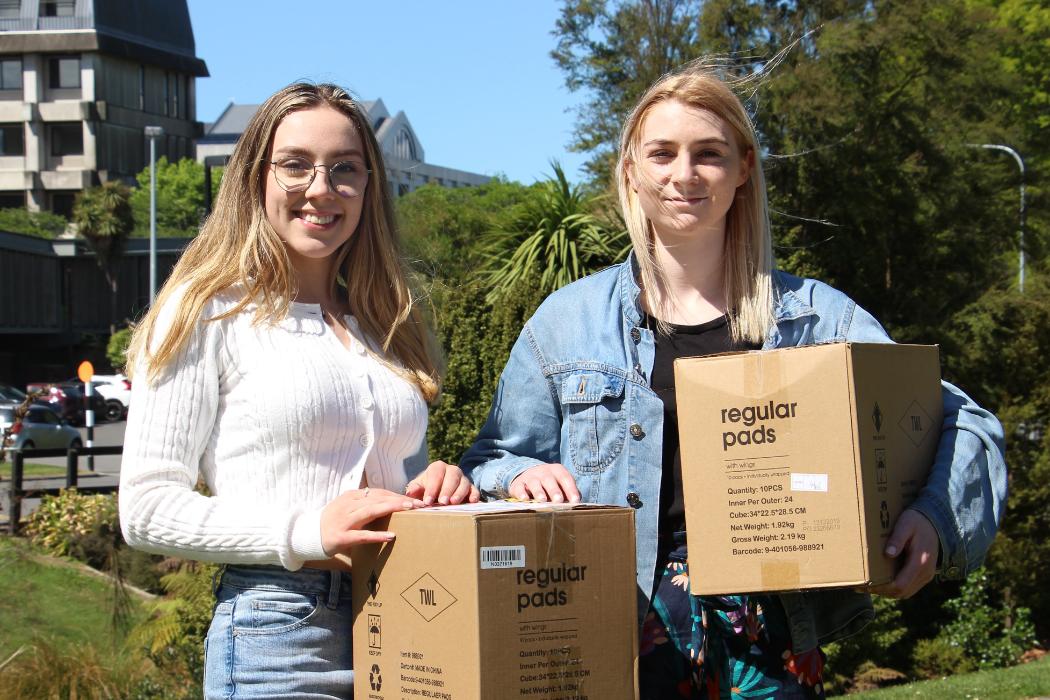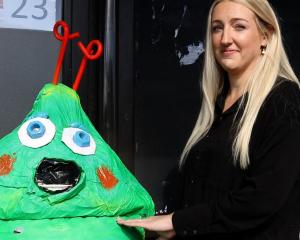
Canterbury University students are fighting the country’s period poverty crisis by donating sanitary products to Te Puna Oranga and Aviva Families, raising $1000 in the process.
In the first week of fundraising, the students have collected more than 1000 packs of sanitary products, which have been donated to the Linwood-based charities.
Students Romy Gellen, Serena Cooper, Caitlin Baker, Olivia Dobbs and Charlotte Hawkins have been inspired by their media and social change course project.
As part of the project, the students have analysed a New Zealand-made short film from Stuff’s Someday Stories series named Super Special.
“When we saw the film about period poverty right here in Aotearoa, we were upset to find it was a reality for so many young people,” said Gellen.
“The group project made us really passionate and drove us to actually do something to combat the issue.”

A 2019 study showed that “12.5 per cent of students who had had their first period missed out on menstrual items due to cost, and that 7.5 per cent had missed school because they couldn’t access menstrual products.”
In some lower socio-economic areas, period poverty was as high as 20 per cent, she said.
Course lecturer Dr Maja Zonjić said period poverty is a fact of life for many people in Aotearoa New Zealand and is compounded by the social stigma surrounding menstruation.
“To see my students get inspired by their final group project to tackle this critical issue and start such an important initiative is incredibly humbling,” she said.
“I am very proud of them and I hope their actions encourage others to positively contribute to their communities.”













